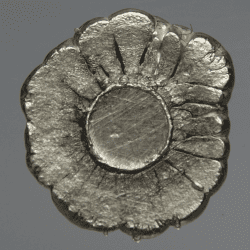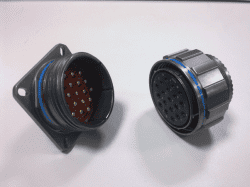How do You Plate Metals Without Electricity?
Plating nickel without the use of electricity involves depositing a nickel coating on an object via a process of chemical reduction.
As the name suggests, unlike electroplating, electroless nickel plating (ENP) does not involve the use of electric current. The process of plating nickel without electricity results in materials covered with coatings of thicknesses of between 25 and 75 cm. While thicknesses of over 75 cm are possible, they are rare due to the technology’s capabilities being limited.
Which Materials does ENP Use?
Most of the forms of ENP processes used in industry that do not make use of electricity instead involve the use of a nickel phosphorus deposit. This deposit usually contains anywhere between 2% and 14% phosphorus. Phosphorus comes with both benefits and downsides. The higher the percentage of phosphorus, the greater the material’s resistance to corrosion. However, this increase in corrosion resistance comes with an accompanying decrease in the material’s hardness. Materials treated with ENP typically display a hardness of 68 and 72 on the Rockwell C scale.
Image Credit
What Substrates does ENP Use?
The following metals are suitable for use as substrates in the process of ENP: aluminium, brass, copper, iron, nickel, steel and stainless steel. It’s easy to see that ENP is a versatile process compatible with a wide range of different metals.
If you’re looking for more information on the materials used in the process of ENP, websites such as the Open University website https://www.open.edu/openlearn/science-maths-technology/engineering-technology/manupedia/electroless-plating will be able to provide you with more details.
What is This Process Used For?
The process of ENP is used in engineering because it has a number of benefits. A full account of the process’ benefits can be found at sites such as https://www.poeton.co.uk/standard-treatments/electroless-nickel-plating/ Here is a summary of just some of the benefits that have led to the popularity of ENP in industry.
1. ENP Creates Uniform Surfaces
Unlike electroplating, the use of ENP reliably results in the creation of materials with uniform surfaces. These uniform surfaces are present even on complex shapes. This stands in contrast to electroplating, which does not lead to the formation of uniform surfaces.
2. ENP Offers Great Corrosion Resistance
One of the many reasons that ENP has become a favoured process in industry is the fact that it offered a great level of corrosion resistance to the materials it is used to coat. Even in cases where heat treatment is not included as part of the process, ENP offers good corrosion resistance against a wide range of common corrodents including saltwater, carbon dioxide, oxygen and hydrogen sulfide
3. ENP Saves You Money
ENP does not require the use of electricity. This means that you will save money on the cost of electricity. ENP also contributes to your ability to save money on business costs via the fact that it does not require the use of specialist equipment in the way the electroplating does.


